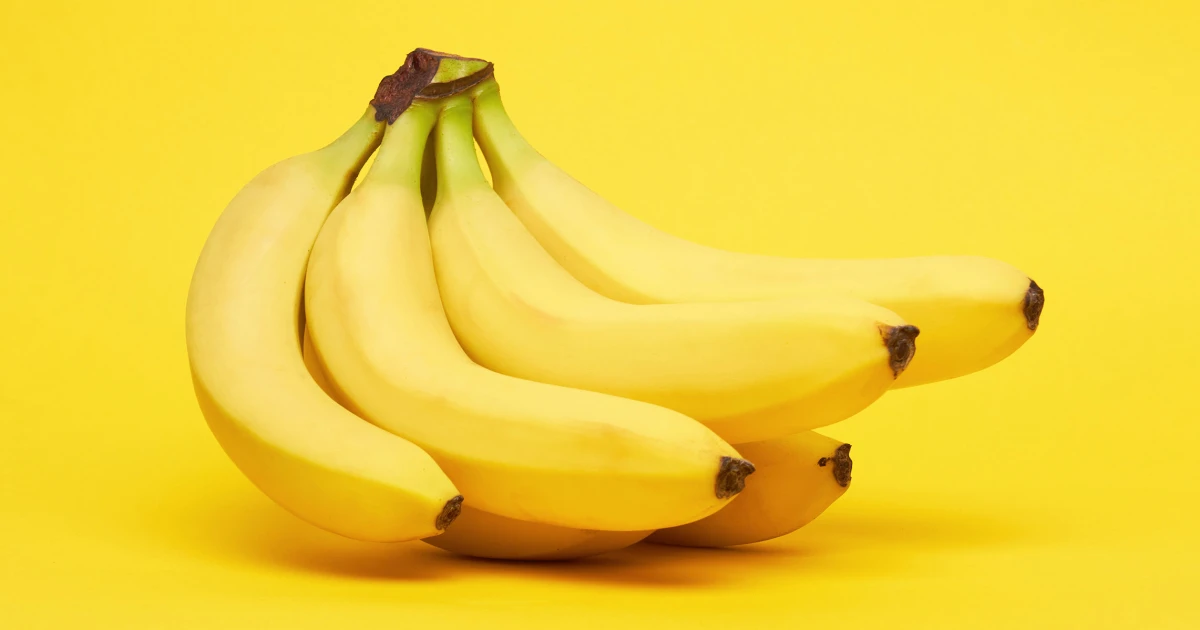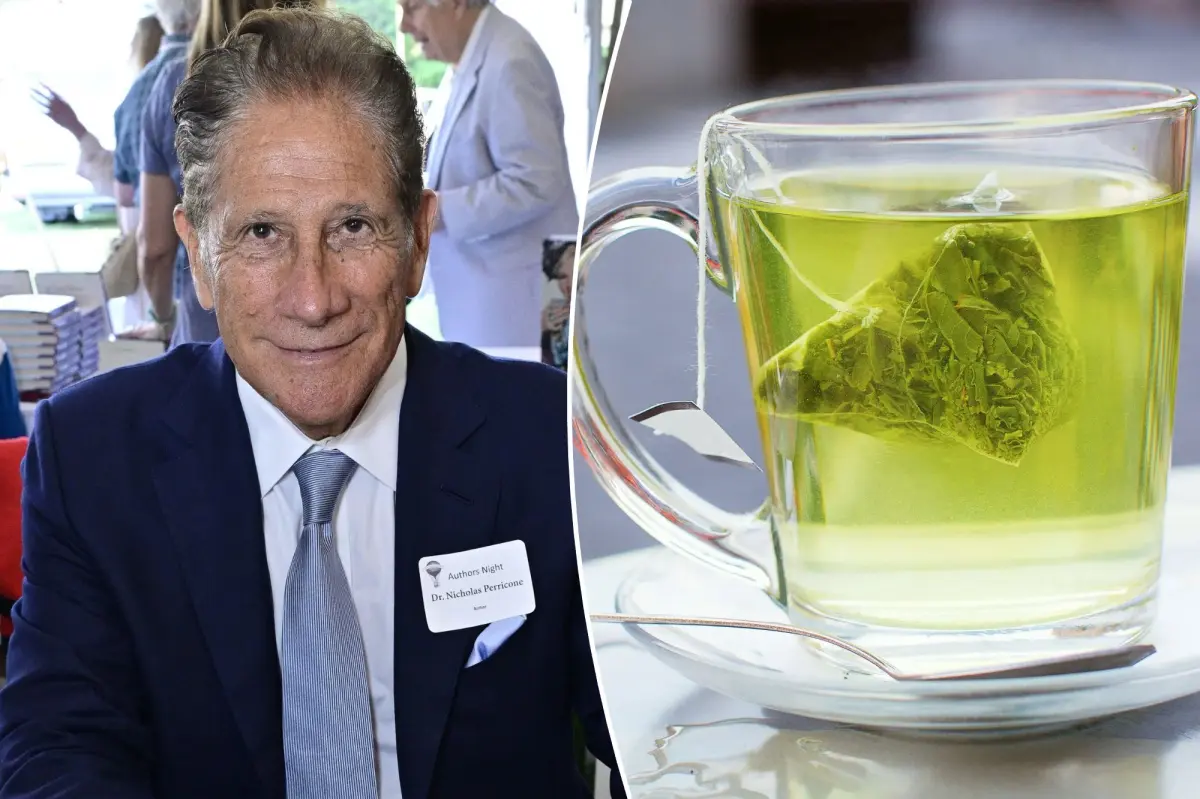Copyright TODAY

Muscle cramps are the worst. Whether it's a side stitch during a run or a rogue "charley horse" that wakes you up at 3 in the morning, cramps can be incredibly painful and annoying. Cramps seem to come on suddenly, often without any warning. The affected muscles may feel extremely tight and tense, accompanied by an intense, stabbing pain or twitching. A bad muscle cramp can be excruciating. Often, it's a waiting game until the cramp ends — but the minutes can feel like hours, and your muscles may even feel sore or weak afterwards. Perhaps you've heard that the answer to preventing and relieving these painful muscle spasms has to do with getting more electrolytes — namely potassium, a mineral that plays a key role in muscle function. That's why bananas, a very rich source of potassium, are often touted as a cure for muscle cramps. Bananas are a popular pre- and post-exercise snack for athletes. They're portable, easy to eat and rich in carbohydrates, which provide energy. But do bananas actually help with muscle cramps? Can the potassium in the fruit prevent muscle cramps or relieve the cramp mid-attack? We spoke to experts to find out why cramps happen, whether bananas are effective, and what actually helps prevent and relieve cramps. Why Do Muscle Cramps Happen? Muscle cramps are a sudden, involuntary tightening or painful contraction of the muscles which can last for seconds to minutes, per the Cleveland Clinic. These can range from mild to severe. The spasms can affect one or several muscles. Areas that commonly cramp include the calves, feet, thighs, back, abdomen and neck. Anyone can get a muscle cramp at any time, but they tend to be more common among athletes. “Cramping happens for different reasons, and sometimes we don’t even really understand why even though they’re so common," Heidi Skolnik, a sports nutrition expert at the Hospital for Special Surgery, tells TODAY.com. Cramps are thought to have to do with the hyperactivity of motor neurons, which tell our muscles to contract, allowing us to move, says Skolnik. Normally, our muscles relax after contracting. "When the (neurons) just keep firing off, it can lead to a spasm or cramp,” says Skolnik. However, scientists aren't always sure why this happens. Muscle cramps may be caused by a range of factors. These include fatigue, over-exercising, dehydration, electrolyte imbalances, heat, lack of stretching, nerve compression and sleeping or sitting in one position for too long, says Skolnik. Certain health conditions and medications can cause muscle cramps, as can menstrual periods or pregnancy. Muscle cramps tend to happen more often as we get older. Muscle cramps are most commonly exercise-related, but they can also happen without any definitive cause, which are called "idiopathic" cramps, Jennifer Bruning, registered dietitian nutritionist and spokesperson for the Academy of Nutrition and Dietetics, tells TODAY.com. These are the kind that strike randomly during sleep, also called "charley horses." Most of the time, muscle cramps are temporary and not a sign of something serious. Do Bananas Help With Muscle Cramps? Bananas are a well-known source of potassium, an essential mineral that helps with fluid balance and allows our muscles to contract properly, the experts note. Potassium is an electrolyte, along with sodium, potassium, calcium and magnesium. "Electrolytes (like potassium and sodium) give off an electrical charge, and this charge can trigger you to move, or the motor neurons to respond," says Skolnik. "When that is disrupted, or you don’t have enough potassium, it could cause cramping," says Skolnik. In theory, getting more potassium could help the muscles function properly. But what does the science say about bananas for muscle cramps? The evidence that bananas can help with muscle cramps is mixed, the experts note, but eating bananas likely won’t directly influence cramping. "There is very little, if any, evidence to suggest that eating bananas will actually relieve cramps in the moment," says Bruning. “It’s not like if you eat a banana, you won’t get a cramp or if you have a cramp, it’ll go away,” Skolnik adds. Most cramps are caused by strain and overuse of the muscles or dehydration. So, "if low electrolytes are not the issue, then (bananas) are not going to help solve the cramp," says Bruning. Even if a person is deficient enough in potassium for this to result in a cramp, eating a banana wouldn't raise potassium levels enough to relieve the spasm in the moment, Bruning adds. However, the risk of cramps may be reduced by consistently getting enough potassium and other electrolytes in the diet, the experts note. Eating bananas, along with other foods rich in vitamins and minerals, could be helpful from a preventive standpoint, Skolnik adds. Essentially, eating bananas definitely won't hurt, the experts note. The potassium helps support heart health and blood pressure. Bananas are rich in carbohydrates, which fuel our body during workouts, says Skolnik. They also provide some gut-healthy fiber. If you enjoy eating bananas, there's no reason to stop. “You definitely still hear from people, anecdotally, that they feel relief from potassium-rich foods ... but the research just hasn’t been able to capture it yet, definitively,” says Bruning. How to Relieve and Prevent Muscle Cramps Unfortunately, there's no magic pill or injection that will instantly treat muscle cramps when they happen, per the Cleveland Clinic. However, there are several things you can do during a spasm to try to relieve a cramp, says Skolnik: Gently stretch the affected muscle. Stand up or walk around. Massage or roll out the muscles. Apply heat or ice to the area. Try deep breathing. "You're just trying to get the neurons to stop firing," says Skolnik. Eventually, the cramp will stop. “A lot of muscle cramps just happen, and there’s not necessarily a lot to do to relieve them in the moment, other than just waiting them out,” says Bruning. If you're sore afterward, you can take an over-the-counter pain reliever. Muscle cramps are often unpredictable, says Skolnik, which makes it's difficult to avoid them. However, you may be able to reduce the risk of muscle cramps overall — the experts offer several tips: Stay hydrated and drink plenty of fluids. Make sure you get enough electrolytes when sweating. Maintain good strength and cardiovascular fitness. Stretch adequately before workouts. Avoid overtraining or overusing muscles. Take breaks from sitting or standing in one position too long. Stretch your feet and legs before going to bed. Eating a balanced diet full of nutrient-rich, whole foods is important for overall health, especially if you're exercising regularly. That means eating enough protein, carbohydrates, healthy fats, vitamins, minerals and antioxidants. Bananas may not be a cramp cure, but you can still benefit from eating them along with other potassium-rich foods. These include potatoes, watermelon, spinach, avocado, prune juice, coconut water and apricots. If you're prone to cramping and it's interfering with your daily life or sleep, consult your health care provider. It’s important to rule out more serious causes, such as neurological conditions.



